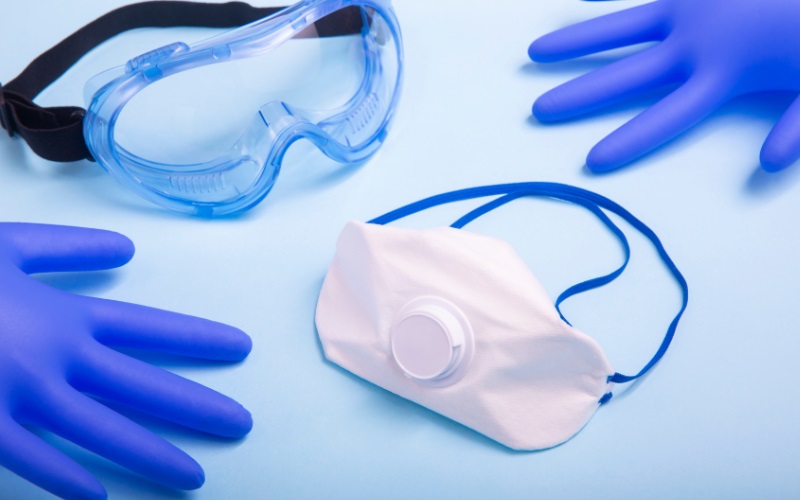The pharmaceutical sector demands strict adherence to safety and hygiene standards, making Personal Protective Equipment (PPE) indispensable. However, collaborating with PPE equipment suppliers comes with its challenges. To ensure a smooth partnership, it’s crucial to be aware of common pitfalls and take proactive measures to avoid them.
Failing to Assess Supplier Reliability
One significant mistake is not thoroughly vetting PPE equipment suppliers. A supplier’s reliability is paramount to maintaining safety standards. Without proper evaluation, you risk working with suppliers who may fail to deliver quality products consistently. This can lead to frequent supply chain disruptions, compromising safety protocols.
Supplier Reputation
Check for reviews, certifications, and compliance with industry standards. It’s essential to dig into their track record. How long have they been in business? Have they worked with other companies in the pharmaceutical sector?
Delivery Consistency
Ensure the supplier can meet your demands without delays. This involves understanding their logistics and whether they have a history of meeting delivery deadlines.
Assessing supplier reliability also includes looking into their financial stability. A supplier in a precarious financial position might not be able to fulfil long-term contracts. Financially unstable suppliers may cut corners, compromising the quality of the PPE.
Ignoring Product Quality
Compromising product quality to save costs can have dire consequences. Hospital patient ID wristbands, for instance, must be durable and tamper-proof to ensure patient safety. Similarly, substandard wipes or nitrile gloves can lead to contamination and health hazards.
Quality Certifications
Verify that products meet the necessary quality standards and certifications. ISO certifications and other relevant industry standards are indicators of quality.
Product Testing
Request samples and conduct thorough testing before finalising any agreements. This helps ensure that the products will perform as needed in real-world conditions.
In addition to certifications and testing, consider the feedback from current users of the products. Direct feedback can provide insights into any recurring issues with product quality that might not be apparent from initial tests.
Overlooking Supplier Specialisation
Not all PPE equipment suppliers are created equal. Some may specialise in certain products while lacking expertise in others. Partnering with a supplier that doesn’t align with your specific needs can result in inefficiencies and additional costs.
Product Range
Ensure the supplier offers a comprehensive range of products such as hospital patient ID wristbands, wipes, safety shoes, and nitrile gloves. A broad product range can streamline your procurement process, allowing you to source multiple items from a single supplier.
Specialisation
Choose PPE or wipe suppliers with proven expertise in the products you require. This ensures that you receive high-quality, specialised items that meet your sector’s unique needs.
Specialisation also means the supplier understands the unique challenges and requirements of the pharmaceutical sector. This expertise can result in better service and more tailored solutions.
Inadequate Communication
Clear and consistent communication is vital in any supplier relationship. Inadequate communication can lead to misunderstandings, delays, and errors in orders. Establishing a reliable communication channel ensures that any issues are promptly addressed, maintaining a smooth operation.
Regular Updates
Request regular updates on order status and any potential delays. This can help you manage your inventory and avoid unexpected shortages.
Contact Points
Establish clear contact points within both organisations for streamlined communication. Having dedicated account managers can facilitate quicker resolutions to any issues.
Effective communication also involves setting clear expectations from the start. This includes detailed contracts outlining the specifications, delivery timelines, and quality standards.
Neglecting Regulatory Compliance
Pharmaceutical sectors operate under strict regulatory frameworks. Partnering with PPE equipment suppliers who do not adhere to these regulations can result in non-compliance penalties and jeopardise your operations.
Regulatory Knowledge
Ensure the supplier is well-versed in industry regulations and compliance requirements. This includes understanding both local and international standards.
Documentation
Maintain thorough documentation of all compliance-related matters. Proper documentation can safeguard your organisation during audits and inspections.
Regular audits and reviews of the supplier’s compliance with regulatory standards are also necessary. This proactive approach can help identify and resolve issues before they become significant problems.
Underestimating the Importance of Supply Chain Management
Effective supply chain management is crucial for ensuring a steady supply of PPE. Partnering with a supplier who lacks a robust supply chain can lead to shortages, affecting your ability to maintain safety standards.
Supply Chain Robustness
Evaluate the supplier’s supply chain to ensure it can withstand disruptions. This involves understanding their sourcing strategies, backup plans, and overall resilience.
Contingency Planning
Ensure the supplier has contingency plans in place for unforeseen circumstances. This includes having alternative sources for raw materials and backup suppliers.
Supply chain management also includes logistics and inventory management. A supplier with advanced logistics capabilities can offer just-in-time delivery, reducing your need to maintain large inventories.
Not Considering Cost-Effectiveness
While it’s important not to compromise on quality, cost-effectiveness remains a crucial factor. Some suppliers might offer premium quality products but at exorbitant prices. Balancing quality and cost is essential for sustainable operations.
Cost Analysis
Conduct a thorough cost-benefit analysis before finalising suppliers. This analysis should consider both direct costs (price of the products) and indirect costs (potential cost of low-quality products).
Long-Term Contracts
Consider long-term contracts for better pricing without compromising quality. Long-term agreements can also provide stability in your supply chain.
Negotiating pricing and payment terms with your suppliers can lead to more favourable terms. This negotiation should be a balanced approach, ensuring both parties benefit.
Conclusion
Partnering with the right PPE equipment suppliers is critical for maintaining safety and hygiene in the pharmaceutical sector. By avoiding common mistakes such as failing to assess supplier reliability, ignoring product quality, and overlooking regulatory compliance, you can ensure a seamless partnership that upholds the highest safety standards.
For reliable PPE equipment suppliers in Singapore, visit Dou Yee today.

